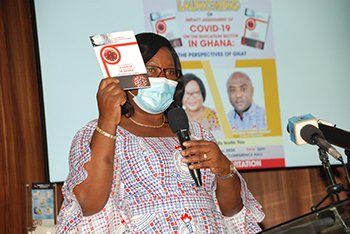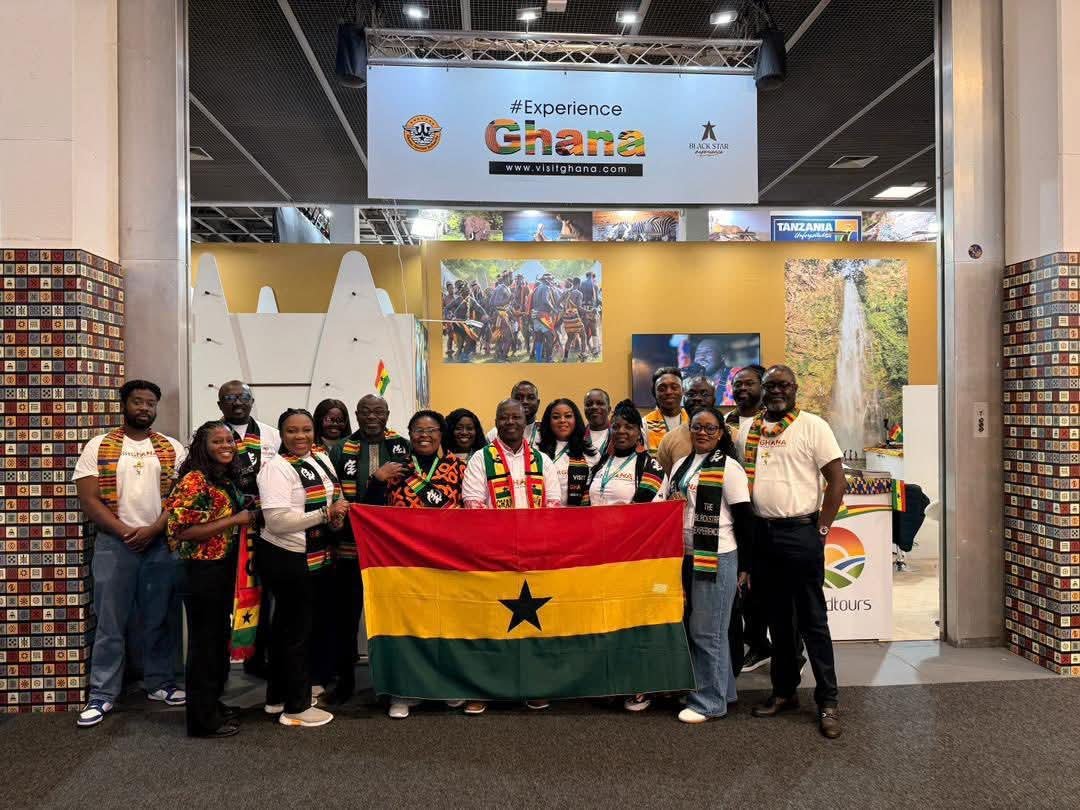Hot!
Teachers won’t go back to classrooms unless…- GNAT

The Ghana National Association of Teachers (GNAT) says its members will not go back to the classroom to teach unless government accede to their proposals of ensuring maximum safety of staff and learners in line with COVID-19 protocols.
The proposals include: the government ensuring a mandatory testing of all teachers and learners to ascertain their status, provision of Personal Protective Equipment (PPE), Veronica handwashing buckets, alcohol-based hand sanitisers and regular flow of water for all schools in the country.
The President of GNAT, Ms Philippa Larsen said this at the launch of the association’s impact assessment of COVID-19 on the education sector in Ghana.
The 30-page assessment booklet evaluates the potential impact of the pandemic and proposes pragmatic solutions which could help the government and the Ministry of Education to build the required resilience to the pandemic.
Ms Larsen said the association has also recommended adequate numbers of health personnel to be provided in the schools to handle the health needs of teachers and learners.
She said the safety of teachers and students must be clearly outlined by the government before taking any decision to reopen schools amidst the global pandemic.
Although the association is not against the reopening of schools, she said government must satisfy their request.
Ms Larsen explained that the United Nations Educational Scientific and Cultural Organisation and United Nations and other international organisations had examined strategies for handling education in times of crisis in countries such as Ghana.
For instance, the World Health Organisation (WHO) has recommended that the current classroom arrangements which are inconsistent with two metres should be addressed, she said.
The Deputy General Secretary of the Trade Union Congress (TUC), Mr Joshua Ansah said the union had also researched into COVID-19 and its impact on businesses and urged the government to collaborate with the teacher unions for a collective way forward towards the reopening of schools.
This, he said would help build a consensus to curtail the spread of the virus in schools.
BY BERNARD BENGHAN
Hot!
Diaspora Affairs Office hosts African diaspora delegation ahead of citizenship conferment

The Diaspora Affairs Office at the Office of the President has hosted a delegation of African diaspora women who are in Ghana ahead of a planned Presidential Conferment of Citizenship ceremony.
The Director of Diaspora Affairs, Kofi Okyere Darko, explained in a Facebook post that the visit was a gesture of appreciation by the delegation to the Government of Ghana for its continued efforts to reconnect Africans in the diaspora with their ancestral homeland.
He indicated that the ceremony, scheduled for next Monday, will officially grant Ghanaian citizenship to members of the delegation as part of the country’s broader engagement with the African diaspora.
The delegation was led by Erica Bennett, Founder of the Diaspora Africa Forum.
According to Mr Okyere Darko, her years of advocacy have played an important role in strengthening ties between Africa and people of African descent living abroad.
He noted that the group’s journey towards citizenship represents not only a legal process but also a cultural and spiritual return to their roots.
Also present at the meeting was Natalie Jackson, an attorney who is also expected to receive Ghanaian citizenship during the ceremony. She works closely with renowned civil rights lawyer Ben Crump.
Mr Okyere Darko emphasised that Ghana remains committed to strengthening relationships with the African diaspora and promoting unity, identity, and shared heritage among people of African descent worldwide.
By: Jacob Aggrey
Hot!
Ghana Showcases Culture and Investment Potential at ITB Berlin 2026

Ghana Tourism Authority is leading Ghana’s participation at ITB Berlin, which opened in Berlin with a vibrant national pavilion highlighting Ghana’s rich cultural heritage, tourism destinations and investment opportunities.
March 5 has been designated as Ghana Day, a special platform to promote Ghana’s languages, cuisine, Kente, festivals and business prospects to the global tourism community. The stand has already drawn strong interest with traditional arts and crafts displays, immersive multimedia presentations and popular Ghanaian snacks.
Seven private-sector players are exhibiting alongside government officials as part of efforts to deepen trade partnerships, expand market access, and attract investment across the hospitality, heritage tourism, ecotourism, and creative arts sectors.
Ahead of the official opening, the Ghana delegation also engaged young Ghanaian investors in Germany in collaboration with V Afrika-Verein and the Ghana Embassy, strengthening diaspora investment linkages and highlighting opportunities within the tourism value chain.
Ghana’s coordinated presence at ITB Berlin 2026 reinforces its strategy to position the country as the Gateway to Africa and a competitive destination for leisure travel and global investment.

 News1 week ago
News1 week agoFinance Minister outlines new gold policies to boost reserves and curb smuggling

 News1 week ago
News1 week agoSam George launches the 2026 Meteorological Awareness Month; presents the 2026 seasonal forecast for southern Ghana

 Hot!1 week ago
Hot!1 week agoBreaking: Footballer who killed two children in Abesim handed lifetime sentence






